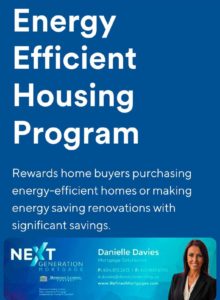🏡 What’s Happening With Mortgages in British Columbia Right Now? 🏠
Hey BC! 👋 Feeling uncertain about your mortgage options in today’s market? You’re not alone. As a licensed mortgage broker, I’m here to break down what’s going on and how it could impact you:
🔑 Interest Rates: Interest rates have been fluctuating lately, and many homeowners are feeling the pressure. While some rates have risen, there are still solid options out there. Whether you’re buying, refinancing, or renewing, there’s a solution that fits your needs. The Bank of Canada meets again on March 12, and there’s a 78% chance of a 0.25% decrease in the key rate. Fixed rates have been up and down following bond yields, but for long-term savings, variable rates are still projected to save you more over the next 5 years. If predictability is important to you, a shorter fixed-term mortgage might be the right option.
💼 Inflation & The Housing Market: Inflation is having a real impact on both mortgage rates and home prices. But don’t worry — you still have options. Working with a professional can help you navigate these challenges and find the best path forward.
💡 First-Time Homebuyers: Thinking about buying your first home? Don’t let the market overwhelm you. There are still fantastic programs and incentives out there. If you’re unsure what’s available for first-time buyers, reach out, and I can walk you through the options!
🏠 Pre-Approvals: Now’s a great time to get pre-approved if you’re planning to buy. With the right pre-approval, you’ll be in a better position to make offers and negotiate confidently. I offer a Free Google Mortgage Toolbox app that can pre-qualify you in 60 seconds, so you can see what you can afford before you even start house hunting.
👥 Refinancing: If you have existing debt or want to tap into the equity in your home, refinancing might be a smart move. Let’s chat about current trends and how refinancing could benefit you.
Let’s make sure you’re equipped with the knowledge to make the best financial decisions for your future. Reach out if you have any questions — I’m here to help!




